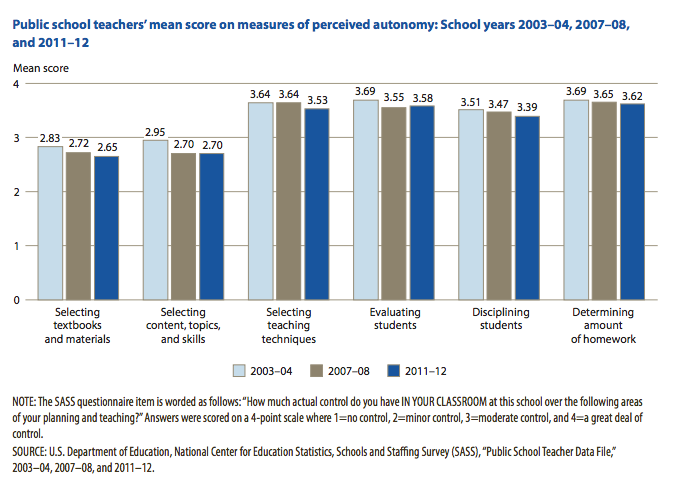How Teaching in America Differs From Finland — and What We Could Learn

By:
In an effort to hold schools accountable and ensure that every American student has an equal opportunity to succeed, the U.S. has imposed regulations that some teachers view as excessive. The situation in Finland — which has the fifth best education system in the world, according to Pearson, an educational assessment company — is much different.
 Bigstock/urfingus - bigstockphoto.com
Bigstock/urfingus - bigstockphoto.com
The Atlantic recently interviewed several Finnish teachers who have also taught in American public schools. Chief among their complaints? A lack of autonomy in U.S. classrooms. Unlike in Finland, where oversight is limited and each teacher is able to craft their own lesson plans, the U.S. puts a lot of pressure on teachers to adhere to a set curriculum and meet various performance goals — and that could explain the low job satisfaction and poor retention at public schools.
Here are three key differences between teaching in Finland and the U.S.
- In Finland, teachers are provided "teaching timelines" at the start of each school year. Those timelines set deadlines for required subject matter, but they don't dictate how teachers conduct the lessons. Finnish teachers are "given the freedom to prepare curriculum-aligned lessons, which matched [their] preferences and teaching style," The Atlantic reported.
- American teachers are routinely observed by school administrators — to the point that if feels like being "under a microscope," according to one Finnish teacher. In Finland, a school administration might observe a teacher during a lesson, but not on a routine basis.
- Test-based accountability — policies that assess teachers and schools based on their students' performance on standardized test — is emphasized in America. Finland's accountability system relies on self-evaluations from schools and teachers, according to a 2012 study from the Gordon Commission on the Future of Assessment in Education.
The source of the problem, as these teachers see it, appears to be federally mandated regulations in the U.S., stipulated in laws such as the No Child Left Behind Act (NCLB). Though that particular law was replaced by President Barack Obama's Every Student Succeeds Act in 2015 — in part due to concerns over the former's test-based accountability emphasis, The Washington Post reported — the effects are still being felt in American classrooms today.
 AP/Michael Spooneybarger - apimages.com
AP/Michael Spooneybarger - apimages.com
On the other hand, there's something to be said about the role of test-based regulations in enhancing collaboration between teachers and developing equitable lesson plans, Kathy Eisenhower, a professional development specialist at Roseville Joint Union High School District in Northern California, told ATTN:.
"Teachers who are readying students for a high-stakes test have sometimes complained that there is little room left for creativity and instilling a passion for their content area in students," Eisenhower said. "Conversely, many teachers are collaborating more because they are finding that when they create meaningful common assessments, analyze student work, and share best practices that they are taking ownership for all students together as a team. Some autonomy is reduced but learning can be higher and more equitable across the system."
Why teachers' perception of autonomy matters.
Teachers that feel a strong sense of autonomy in their profession are more likely to report high job satisfaction, a 2015 report from the National Center for Education Statistics found. Teachers who feel like "they have less autonomy," by contrast, are more likely to "leave their positions, either by moving from one school to another or leaving the professional altogether."
After NCLB was signed into law in 2002, teachers reported feeling a reduced sense of autonomy in the years that followed. They felt they had less freedom over everything from textbook selection to teaching techniques to disciplinary action, the report determined.
 NCES - ed.gov
NCES - ed.gov
Mark Tucker, president and CEO of the National Center on Education and the Economy, told The Atlantic that autonomy ought to be conditional, however. He said that countries that grant autonomy to teachers "successfully" are those that have also "made an enormous investment in changing the pool from which they are selecting their teachers," and "make a much bigger investment than we do in the education of their future teachers."
That is, expanding autonomy for teachers isn't necessarily the solution to the shortcomings of America's education system. But if teachers are being effectively selected and supported, autonomy can go a long way.
